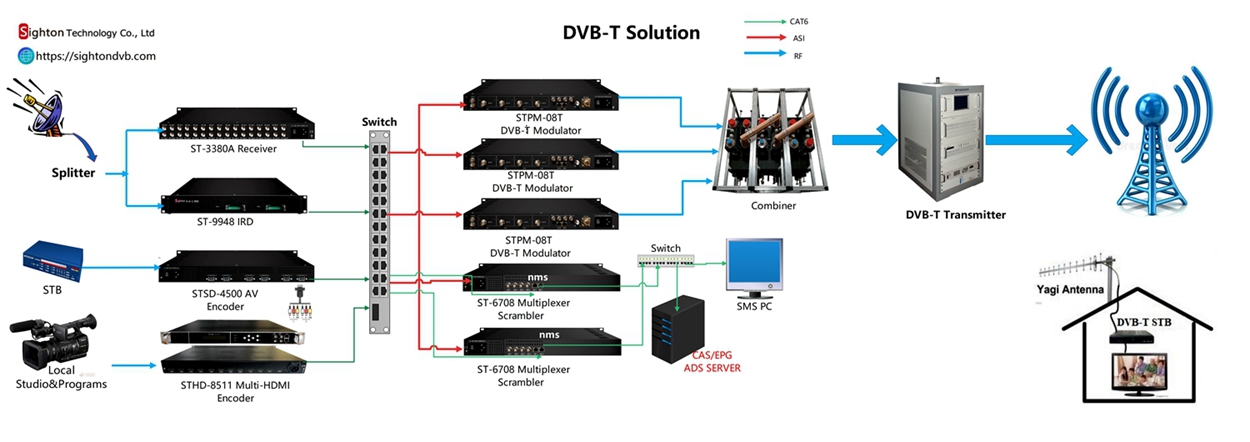Terrestrial digital television DVB T system is a low-cost digital wireless multi-channel TV coverage method to achieve or exceed the effect of cable multi-channel TV. It is mainly composed of digital wireless transmitting base stations, relay stations used to expand coverage and eliminate blind spots, an indoor distribution system for urban building coverage, composed of antennas for wireless reception, digital set-top boxes, and digital TV sets.
Compared with the MMDS system, both are digital distribution systems, the difference is that one is UHF transmission and the other is microwave transmission.
Because of the different transmission methods, the equipment used is different. In the past, microwave transmission was widely used, but there were many limitations such as insufficient bandwidth and high cost. Now, the MUDS DVB T/T2 system has gradually been replaced it because of its low cost and large bandwidth.

Here is MUDS DVB-T solution, it is based on MUDS DVB-T ASI, fully complying with DVB-T EN300 744 standard. Sighton not only provides you with professional system solutions but also a complete set of equipment: Receiver, Gateway, IRD, Mux-scrambler, DVB-T Modulator, and UHFTransmitter. It would support you and provide complete technical support and after-sales service for you to build the DVB-T system.
We can provide an end-to-end solution with easy management and maintenance. (Hardware and software included)
Independent intellectual property rights of products, stable system, and prompt after-sales services.
The installation and technical training are provided.
It is easy to extend the program number and network distance.
Cost efficient
Fetch information:
How many programs will the system transmit?
Are the programs sources from satellites or others? It depends on which kind of head-end equipment will be used.
And we also need to use different receivers for receiving free channels and encrypted channels.
How tall is the tower?
(It is better to have a picture of the iron tower to show it clearer)
The height H of the iron tower determines the coverage radius
The higher the tower, the farther the transmitter with the same power can cover, the effect is of course better
The local terrain, if it is plain, is quite good; if it is a mountainous area, we need to add more equipment in the future
Video encoding format:
Is it H264 or H.265?
Generally, most DVB T projects use H264 because the cost is cheaper.
Does the owner charge for encryption after the system is completed?
The CAM/SMS software system and set-top box will be configured for it.
Devices-Recommend
DVB T UHF Transmitter with 200~600 watts output: | Compare with DVB T2 system: |